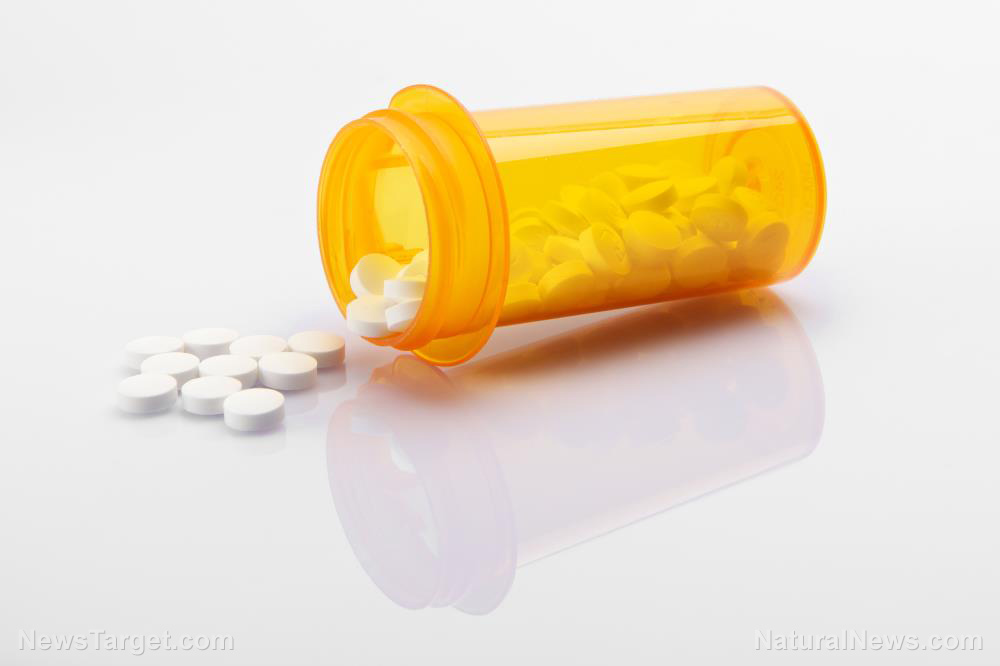New study: HCQ improves coronavirus infection survival rates by 200%
06/16/2021 / By Ramon Tomey

A new study has found that hydroxychloroquine (HCQ) can increase Wuhan coronavirus (COVID-19) survival rates by up to 200 percent. It also found that when paired with azithromycin (AZM), the drug’s effectiveness was even augmented. Originally for malaria, former President Donald Trump endorsed HCQ as a potential COVID-19 treatment – and received much criticism for it.
The May 31 study published on medRxiv examined patients at the Saint Barnabas Medical Center in New Jersey hospitalized for COVID-19. The patients received different kinds of medical treatments to address COVID-19 such as steroids, tocilizumab, convalescent plasma and HCQ. The study did not include remdesivir as a treatment as it was unavailable at the hospital during the study period.
According to the study authors, patients given HCQ and AZM “had a survival rate 2.9 times [higher] than other patients” when they got both drugs above a certain dose. They added that “combined therapy” of more than three grams of HCQ and more than one gram of AZM “greatly increases survival” of intubated COVID-19 patients.
For the study, the researchers administered a combined treatment of more than three grams of HCQ and more than one gram of AZM to 37 patients. Meanwhile, 218 patients received less than three grams of HCQ and less than one gram of AZM. The 37-patient group recorded a survival rate of 48.6 percent, while the remaining 218 patients registered a low 16.5 percent survival rate.
However, the authors noted that the increased survival cannot be attributed solely to the combination of both drugs. This is because patients who received higher HCQ doses also received higher doses of AZM. But they nevertheless noted that azithromycin contributed significantly to the higher survival rate.

The study authors indicated that HCQ indirectly prevents SARS-CoV-2 from infecting healthy cells. The anti-malarial drug does this by affecting the pH level of lysosomes – the waste disposal system of cells – thus reducing the pathogen’s chance of latching on to human cells.
Study vindicates former Trump’s endorsement of HCQ
During the early months of the pandemic, Trump touted HCQ as a potential “miracle treatment” against COVID-19. In March 2020, the former president said he was taking HCQ to prevent him from catching the virus. However, scientists slammed him for his support of what was considered back then as an “unproven” medicine to fight Wuhan coronavirus infections.
Trump declared in April 2020 that the U.S. procured “a tremendous amount” of HCQ. He said the drug worked on different diseases such as lupus and malaria – and had shown “very strong signs” against COVID-19. “It’s a very strong [and] powerful medicine, but it doesn’t kill people. We have some very good results … and tests [on it],” Trump continued.
In May 2020, he again reiterated the fact that he himself was taking HCQ because of “a lot of good stories about it.” Trump said that time: “I happen to be taking it. I’ve heard a lot of good stories, [and] a lot of good things have come out. You’d be surprised at how many people are taking it, especially the front-line workers.”
Many of Trump’s allies lauded the May 31 study bolstering HCQ’s benefits against COVID-19, with some expressing their views on Twitter. His son Donald Trump Jr. posted in a tweet: “In the last week alone, we’ve learned that the media, so-called fact-checkers and their Big Tech enforcers lied to us about the lab leak theory [and] HCQ – all to hurt Donald Trump. What else are they lying about?”
The younger Trump saw his Twitter account being blocked last year after he posted a video of doctors reiterating the effectiveness of HCQ. The social media site accused him of “spreading misleading and potentially harmful misinformation” about COVID-19.
U.S. Rep. Marjorie Taylor Greene (R-GA) tweeted a question: “How many people died [because] Dr. [Anthony] Fauci said ‘trust the science and [HCQ] isn’t effective?” Jason Miller, a spokesman for the former president, simply wrote “Oh.” The elder Trump has yet to release a statement on the study – as he has been banned from all major social media platforms.
As of writing, HCQ is still considered an unproven drug to treat COVID-19. It was initially approved for emergency use back in March 2020. However, the Food and Drug Administration (FDA) revoked HCQ’s emergency use authorization (EUA) in June of that year.
The regulator said in a June 15 statement that the legal criteria for issuing a EUA to the drug are no longer met and it was “unlikely to be effective” against COVID-19. The statement said: “In light of ongoing serious cardiac adverse effects and other potential serious side effects, the known and potential benefits of [HCQ] no longer outweigh the known and potential risks for [its] authorized use.”
Visit Pandemic.news to read more articles proving the effectiveness of HCQ against COVID-19.
Sources include:
Tagged Under: azithromycin, covid-19 pandemic, covid-19 treatment, Donald Trump, emergency use authorization, Food and Drug Administration, hydroxychloroquine, medical treatment, SARS-CoV-2, Wuhan coronavirus




















